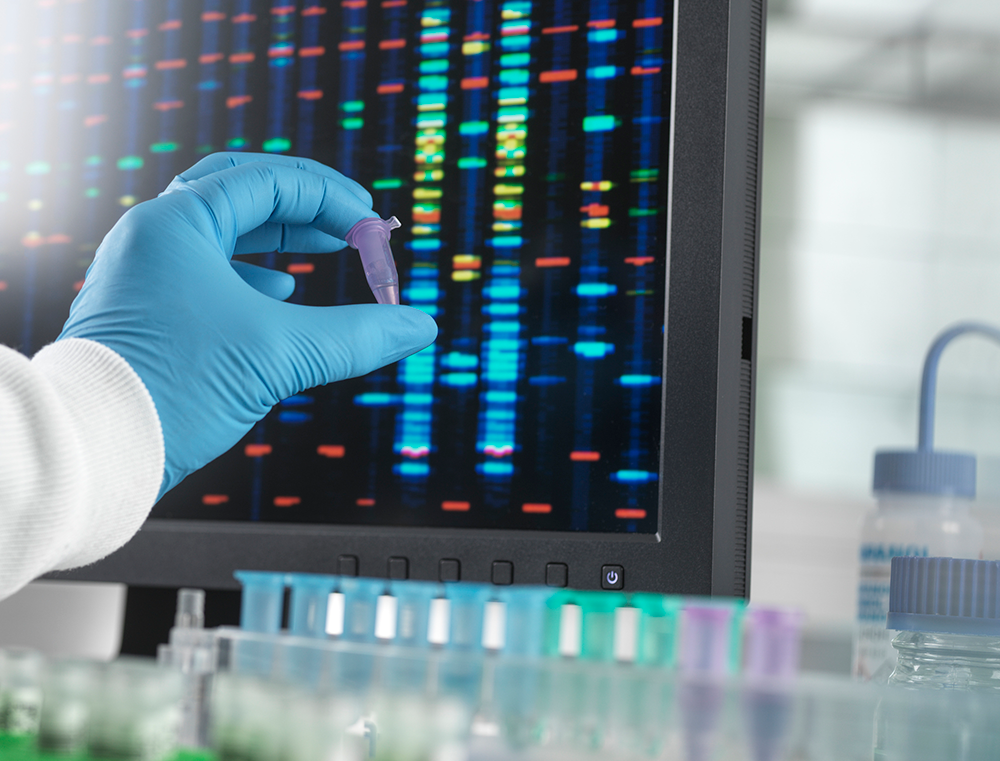Treating cancer should be customized to each patient. As you and your health care team consider the best treatments for your personal needs, you might discuss clinical trial opportunities. This can bring on many emotions for patients and their loved ones, from curiosity and hope to wonder and worry.
Many patients consider clinical trials because they can offer access to new treatments that may make a difference in their cancer journey. What's more, what is learned through this important research can help change the way cancer is treated in the future to make a positive impact for others.
What is a clinical trial?
Clinical trials are research studies designed to find better ways to treat cancer and may test many types of treatment such as new drugs, new combinations of treatments, new approaches to surgery or radiation therapy, or new methods such as vaccine or gene therapy.
"Doctors and health care professionals learn important information in these trials to help them provide the best treatment possible to patients," says Dr. Tim Larson, medical oncologist and director of research at Minnesota Oncology. "Modern medicine is always advancing and clinical trials are an important component of this evolution."
Many people have questions about clinical trials and Dr. Larson stresses it's important to bring these conversations up with your health care team. Additionally, he helps shed light on some widely believed myths about clinical trials to help patients and their caregivers better understand these important medical studies:
Myth 1: Clinical trial participants might receive a placebo rather than real therapy
Placebos are inactive medications that are occasionally used in cancer clinical trials but are never used in place of the best-known standard of care. If a placebo is used, it is given along with an active drug or in situations where standard of care would be observation.
Myth 2: Clinical trials can delay treatment or limit other treatment options
Clinical trials are completely voluntary and do not limit access to other care. A participant can withdraw from a trial at any time and for any reason to pursue a different course of treatment. You can continue to have ongoing discussions about treatment options with your health care team.
Myth 3: Clinical trials are not safe because the effectiveness of the treatment is unknown
Extensive research is conducted on a new treatment before it’s tested with trial participants to ensure safety. Additionally, regulations are in place to protect patients’ rights and ensure trials meet strict scientific and ethical standards.
Myth 4: Clinical trials are only for patients with advanced cancers
While there are clinical studies only for patients who have tried all treatment options or who have a cancer that is seldom seen, there are also many trials for first line treatment, common cancers and other subjects of interest. This is why it's important to ask and stay informed.
Myth 5: Clinical trials are only offered at hospitals or academic facilities
Today clinical trials are offered in many settings, including community-based cancer centers. Patients can access the newest trials with the same resources and expertise as a large health system, right in their community.
"Community-based oncology practices such as Minnesota Oncology play a critical role in the development of new treatment options for patients," says Dr. Larson. "My fellow Minnesota Oncology physicians and I believe clinical trials are an important component of cancer care and are crucial for improving cancer treatment."
How can you learn more about clinical trials?
Trials are always happening and can focus on many different areas, which means a wide range of patients may be eligible for participation. Some areas of focus may include:
- Prevention
- Diagnosis
- Treatment
- Quality of life
- Supportive care
- Screening
- Genetics
Depending on the study, participants may need to meet certain criteria for type and stage of cancer, age and sex, general health and previous treatment received. Ask your health care team about clinical trial opportunities that could be right for you. Learn more at mnoncology.com.



